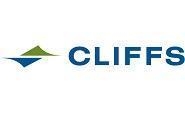Market Segment

December 4, 2019
Cleveland-Cliffs to Acquire AK Steel
Written by Sandy Williams
Cleveland-Cliffs and AK Steel Holdings surprised the market this morning, announcing the merger of their two companies. Under a definitive merger agreement, Cleveland-Cliffs will acquire all the issued and outstanding stock of AK Steel at $3.35 per share or $1.1 billion.
Cliffs Chairman and CEO Lourenco Goncalves will lead the expanded organization and AK Steel CEO Roger Newport will retire. The AK Steel brand name will remain and the company will maintain a significant presence at the West Chester, Ohio, headquarters. The expanded company will be administered through the headquarters at Cleveland-Cliffs in Cleveland, Ohio.
“We are excited to be able to deliver real value to the shareholders of both Cliffs and AK Steel through a value-enhancing and leverage-neutral transaction,” said Goncalves. “By combining the best-in-class quality of AK Steel’s assets and its enviable product mix with Cliffs’ debt profile and proven management team, we are creating a premier North American company, self-sufficient in iron ore pellets and geared toward high value-added steel products.”
Newport called the transaction a “compelling opportunity. The combination of Cliffs’ iron ore pellet capabilities and our innovative, high-quality steel product development and production is strategically compelling. Together, we expect to be able to take advantage of growth opportunities faster and more fully than either company could on its own.”
Cliffs’ Toledo hot-briquetted iron facility will ensure pellet volume commitments for AK Steel’s blast furnaces and complement its existing long-term minimum volume pellet offtake agreements with other key integrated steel producers, the company said.
Should customer demand warrant it, Cliffs also plans a potential restart of the blast furnace at AK Steel Ashland to make pig iron. Doing so would create future opportunities for pellet demand and more metallics products without significant additional capital expenditures. No reline is anticipated for the blast furnace at Ashland and a restart is expected to cost $25-$30 million.
Cliffs has identified $120 million in synergies for the first year of the acquisition, including the refinancing of some AK Steel debt. Cliffs will also consider selling some of AK Steel’s downstream assets. The merger is expected to increase AK Steel adjusted EBITDA margins, currently at 8.1 percent, to align with Cliff’s 15.0 percent margins.
Goncalves noted that Cleveland-Cliffs is well positioned as the industry transitions toward greener steel. AK Steel furnaces already use HBI, which cuts CO2 emissions by reducing the need for carbon in the steelmaking process. Goncalves also believes the trend will continue towards EAFs replacing blast furnaces. AK Steel’s blast furnaces are well maintained and efficient and expected to continue production for several more years.
The transaction is expected to close in the first half of 2020 subject to regulatory approvals.







